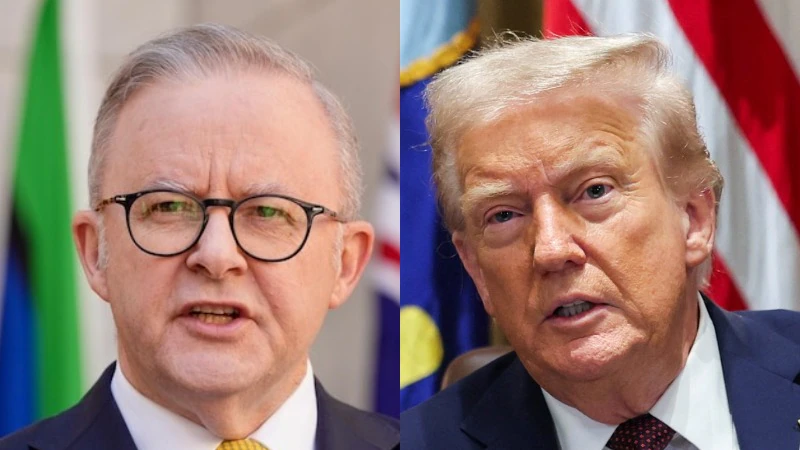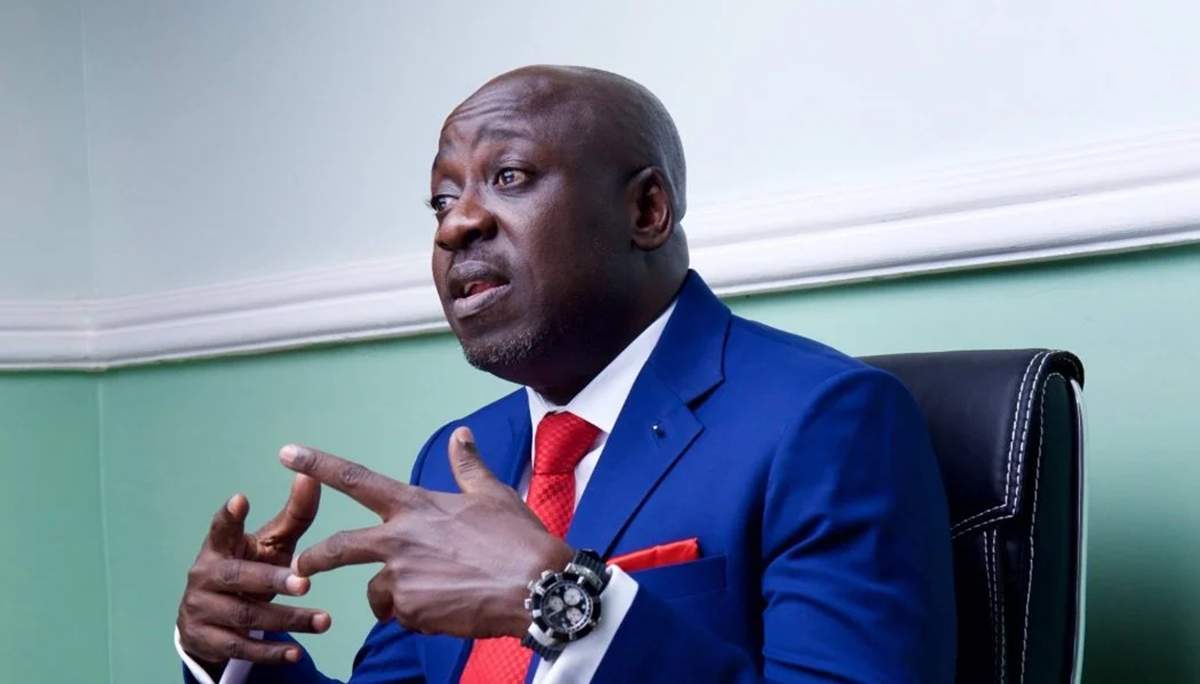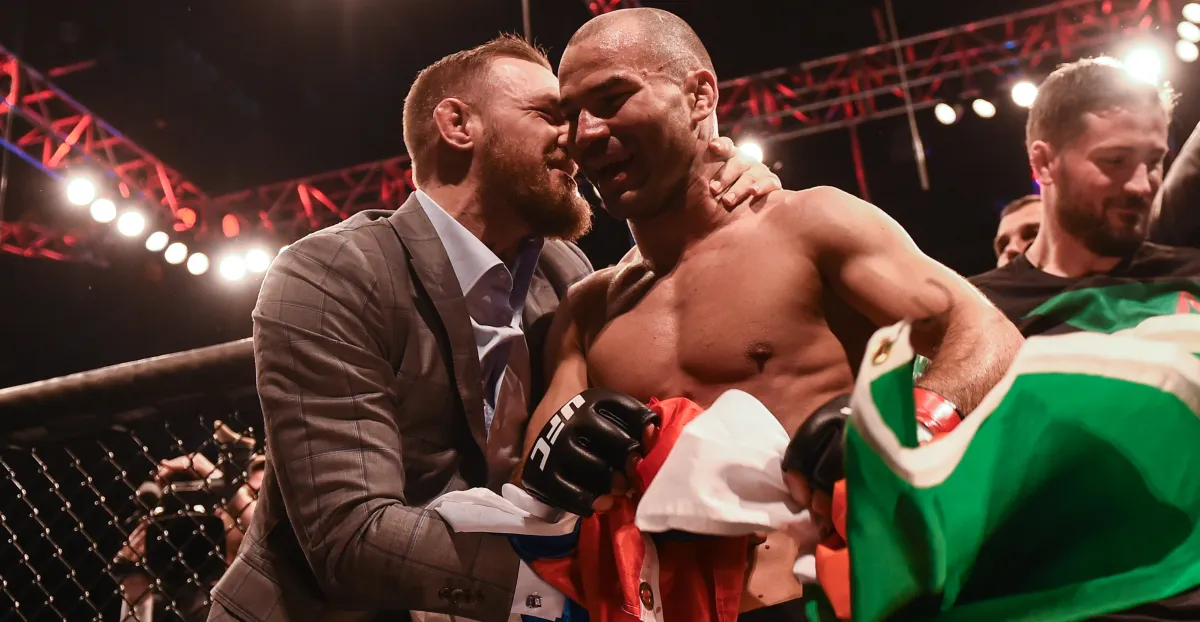By Brett Worthington
Copyright abc

The first rule of politics is: When your opponent is tearing itself apart, sit back and enjoy the show.
As the Coalition continued to eat itself alive with a fresh round of messy infighting this week, Labor happily sat back feasting on popcorn, thankful that its own woes were taking a back seat.
It’s been a well-publicised bruising couple of weeks for Opposition Leader Sussan Ley, something she hoped would be behind her after she reshuffled her frontbench on Sunday.
But the mere mention of emissions targets is enough to trigger a volcanic eruption from Mt Coalition.
The warnings started ringing almost as soon as the government released a first-of-its kind climate risk assessment, a bleak document that forecasted 1.5 million homes in Australia would be at risk from rising sea levels, that a million homes could be uninsurable and the Defence Force likely overwhelmed if global temperatures continue to rise.
That’s without mentioning the premature deaths of Australians in deadly heatwaves.
The release of the risk assessment was designed as a permission structure for what would come later in the week — the release of long awaited 2035 emissions targets.
But before we got there, just the mention of net zero was enough to have Liberal frontbencher Andrew Hastie, a man who never hides his ambition to lead the Liberals, warning he’d be out of a job.
There’s nothing quite like a frontbencher threatening to quit to spark a new round of leadership chatter, even as Ley tried to move the political agenda onto economic grounds.
By Wednesday, Hastie was noticeably more conciliatory, conceding to Sky News Australia that his views on net zero (that the party needs to abandon it), were the minority within the Liberal Party.
It’s a curious concession for someone who wants to lead the party to admit they don’t align with the bulk of the party room, but we digress.
With a gut full of popcorn, the moment came for Labor to release its long-awaited 2035 target, doing so alongside former state Liberal MP-turned federal bureaucrat Matt Kean.
The target, a cut between 62 to 70 per cent by 2050, was below what Kean’s Climate Change Authority initially consulted on, but positions Australia as being more ambitious than Canada and New Zealand, though lagging behind the UK.
It prompted the immediate reactions you’d imagine. The Greens said it was pathetic and the Coalition deemed it economy-destroying.
For a man who seems happy walking calmly down the middle of the aisle, it was the kind of reaction Albanese might have been hoping for.
PM stranded in the Pacific… again
Making the climate announcement in Sydney on Thursday was a far cry from how his week started.
Albanese set flight for Papua New Guinea, where he expected to sign a defence treaty with Australia’s nearest neighbour.
It was meant to be a historic agreement between the two nations, inked in conjunction with PNG’s 50th anniversary of independence.
The plan was that the PNG cabinet would sign off on it while the PM was en route.
Slight problem. It didn’t happen, thanks to a lack of ministers showing up for the meeting, and look, who among us hasn’t had an early mark ahead of a big celebration.
Putting on a brave face, Albanese on Tuesday remained adamant that it would be signed come Wednesday, but as the new day rolled around, the PM suddenly found himself stranded in the Pacific… again.
Just a week ago, the a visit to Vanuatu ended with Albanese flying out without getting to sign the security deal Australia was seeking.
This time at least he got to use his pen, but only to sign a communique that stated Australia and PNG would sign a defence treaty once the cabinet signed off on the deal.
It left ABC foreign affairs reporter Stephen Dziedzic channelling his best Oscar Wilde, or more specifically Lady Bracknell from The Importance of Being Earnest.
“To lose one parent, Mr Worthing, may be regarded as a misfortune; to lose both looks like carelessness.”
Few would be surprised if Albanese found himself quietly muttering Shakespeare’s “Et tu, Brute?”, as he again found himself hung out to dry on the world stage.
As Albanese returned home, PNG confirmed its defence minister was headed to China.
His trip comes hot on the heels of one taken by Victorian Premier Jacinta Allan, who this week was reportedly hunting Chinese investment in Victorian public transport… something not too dissimilar from the investment Pacific nations have been seeking from China.
Trump sends Albanese a life raft
A rare glimmer of positive news for Albanese came from an unexpected quarter, with US President Donald Trump seemingly confirming a meeting with the PM.
As he berated ABC journalist John Lyons for daring to ask a probing question, Trump made clear he’d be reporting him to the PM.
“Your leader is coming over to see me very soon,” Trump said.
“I’m going to tell him about you. You set a very bad tone.”
Trump has spent much of his return to the presidency haranguing world leaders to spend more on defence.
While Australia’s defence spend is well below what he wants, Albanese hoped he could go to a Trump meeting with a suite of Pacific security pacts, as a way to signal the efforts Australia was putting in to counter Chinese expansion throughout the region.
If the stakes of meeting Trump weren’t already high enough, the leaders of PNG and Vanuatu might have made Albanese’s task that much harder.
But he caught a break late in the week, with King Charles, one of the few figures Trump appears enamoured with, spruiking the AUKUS agreement during a state dinner with the US president.
Wong opts for silent acting
The second rule of politics is if you’re the acting prime minister, let the whole world know about it.
That is if you’re Richard Marles, the nation’s deputy prime minister, if only in title.
Labor insiders will privately concede that Foreign Minister Penny Wong, a key member of Albanese’s Praetorian Guard guard, is the PM deputy where it matters.
When Albanese leaves the country, Marles serves as acting PM and everyone knows about it.
Letterheads are updated and he’s usually taking morning TV and radio slots.
With Marles also in PNG, the acting PM title fell to Wong, who opted for more of a silent approach, an unfunny Charlie Chaplin, if you will.
It’s not that Wong didn’t have cause to be out and about, flexing her ministerial might amid all news about PNG, Trump and a UN report finding that Israel is committing genocide in Gaza.
Alas, no letterheads were updated, nor was morning TV and radio serviced.
Instead, Wong opted for a social media post to mark the end of her tenure. Standing with the with the wildly popular SA Premier Peter Malinaukas, she noted for a short time South Australians had been running the country.
There are no shortage of Labor true believers that wouldn’t mind that if Wong, or the man standing next to her, found themselves in the PM’s seat permanently.



